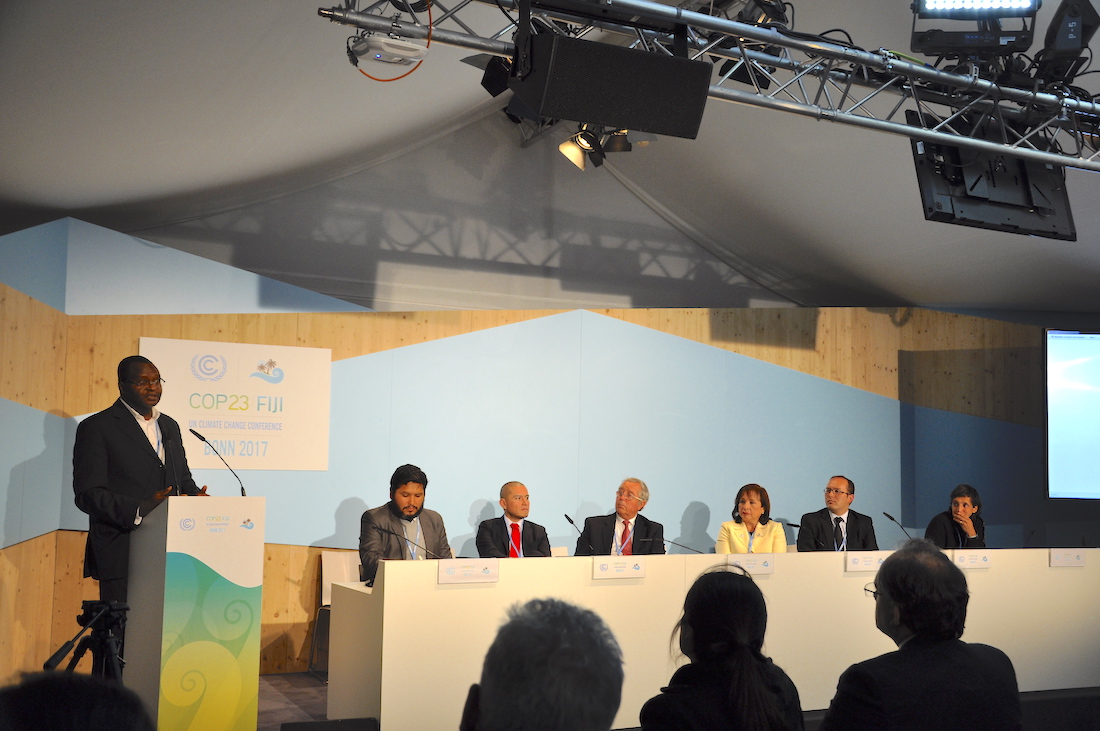
By Atayi Babs
2018 will herald the launching of a new platform that will harmonise and coordinate multiple programmes and actors in Africa’s environment sector.
Estherine Fotabong, Programmes director of the New Partnership for Africa’s Development (NEPAD) disclosed this today on the side-lines of the ongoing UN climate talks in Bonn also known as COP 23.
The new platform is a response to the call for the creation of an African Environment Partnership Platform (AEPP) to “coordinate, mobilize resources, foster knowledge and align support for the implementation of the Environment Action Plan” made at the 14th Session of African Ministerial Conference on Environment (AMCEN).
The African Union Commission and NEPAD Planning and Coordinating Agency, in close collaboration with the United Nations Environment Programme, the United Nations Economic Commission for Africa, RECs and other relevant partners have been mandated to develop modalities for the operationalization of this environment partnership platform.
Ms Fotabong says the platform will seek to deliver a paradigm shift in addressing environmental degradation in Africa, in both public and private sectors and to develop innovative models.
“The platform will engender the prerequisite political support, needed institutional structures and adequate human capacity at national and regional levels to ensure integrated environmental management” she added.
Multiple environmental schemes
Concerns, however, have been raised by experts over the multiplicity of interventionist schemes and the attendant lack of coordination in the management of Africa’s environment.
Is this platform coming up because there is shortage of interventions in the field of environmental management in Africa? What about the lack of coordination and partnership between the various players at regional, sub-regional and national levels?
NEPAD believes the new platform is an accurate response to these concerns.
It is of the view that the cross-border nature of natural resources and transboundary effects of climate change, land degradation and other natural disasters make it imperative for the mainstreaming of national and regional planning process which this platform will spearhead.
The environment, Ms Fotabong says, though a cross cutting sector, will remain distinct and adequately harmonized with other sectors and priorities like agriculture, infrastructure and energy. Climate related risks will increasingly be mainstreamed into development and adaptation actions will be carried out in priority regions and sectors.
The Africa Environmental Partnership Platform is expected to draw lessons from the success and challenges of the Comprehensive Africa Agricultural Development Programme Partnership Platform (CAADP PP) which provided a framework for developing African agriculture and rallying support for agricultural transformation.











